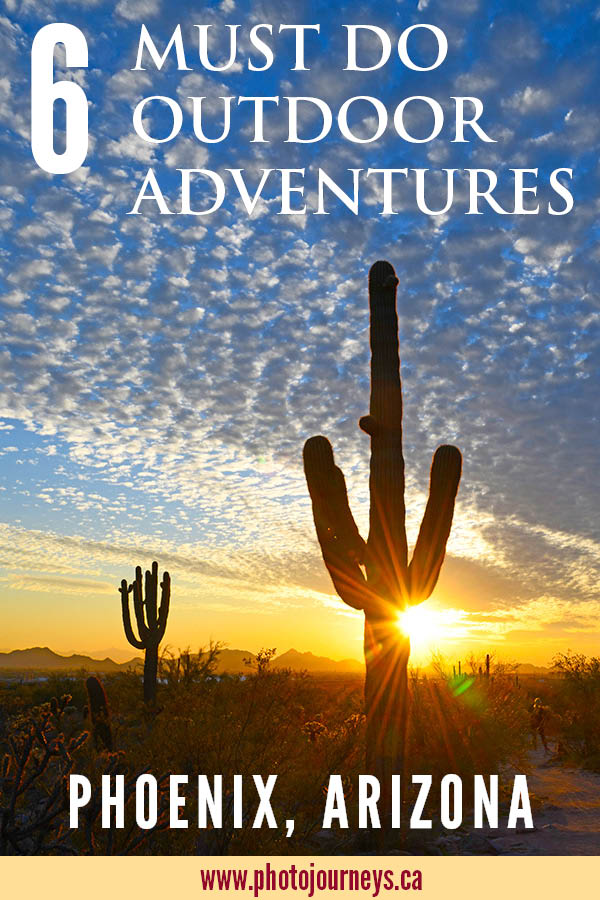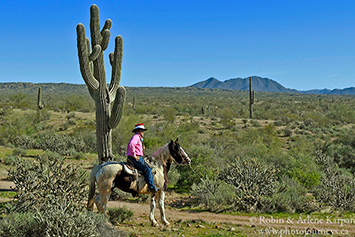
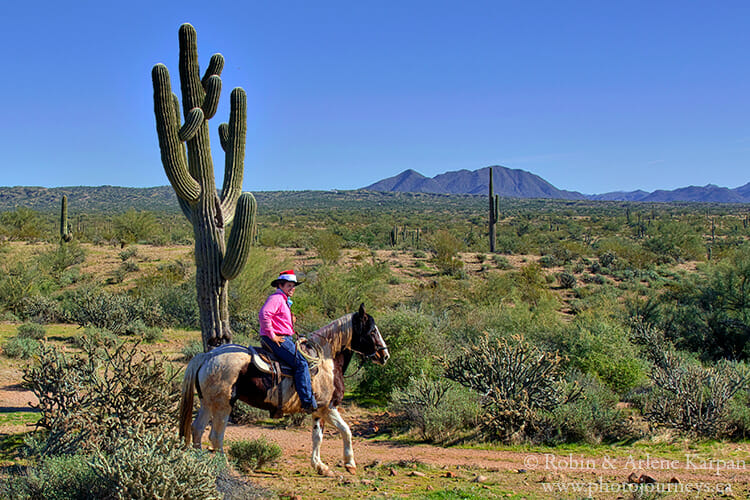
The most surprising part of Phoenix, Arizona, is the easy access to nature and outdoor activities, even though it is one of the larger cities in the United States. Phoenix is in the midst of the Sonoran Desert, a striking landscape dominated by huge saguaro cactus, with rugged mountains and intriguing rock formations. Several natural areas are interspersed throughout the Greater Phoenix area where you can hike, enjoy scenic vistas, learn about the desert, ride the open range on horseback, take to the air for a bird’s-eye view, and even see the desert from a kayak. Yep, that’s right – kayaking in the desert!
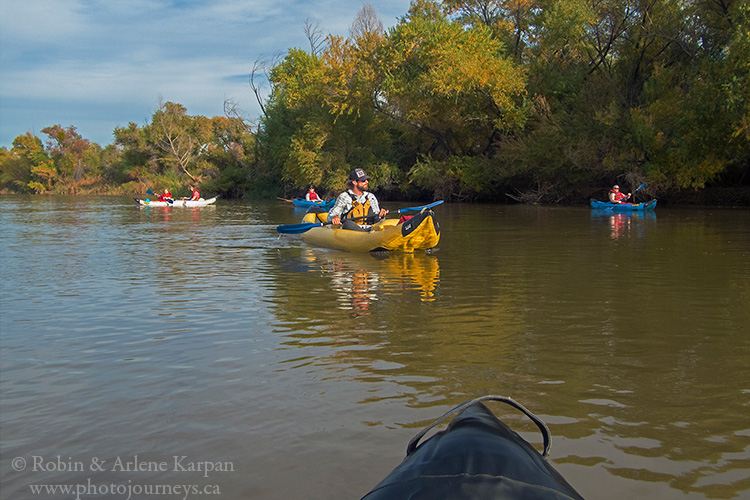
While the possibilities are almost endless, here are six ways to get in touch with nature and the outdoors that we especially enjoyed:
1) Take a Horseback Trek through the Desert
If you prefer exploring while sitting down, a horseback trip is the perfect choice. We did a two-hour trek with Fort McDowell Adventures through unspoiled desert terrain against a mountain backdrop. Although their stables are only a short drive from the city, it felt as if we were travelling through remote wilderness terrain.
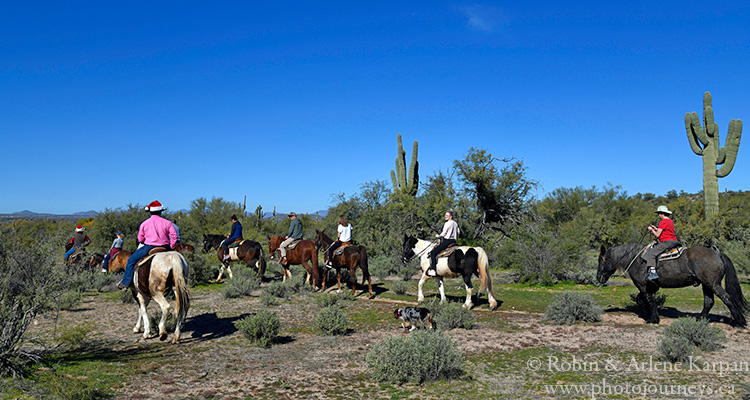
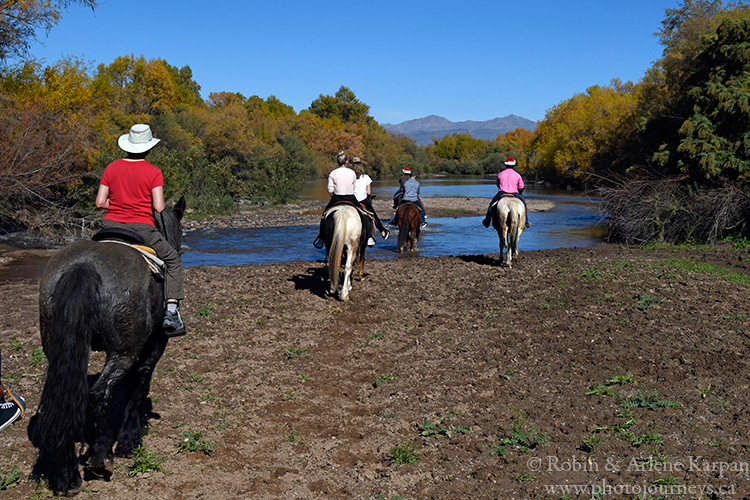
Accompanied by expert guides, we rode across dry rolling hills where we zigzagged among giant saguaros. Then there was the contrasting greenery of the tree-lined Verde River Valley. The most exciting part was crossing the river itself. Hawks and eagles soared above, though the highlight was getting close to some of the legendary wild horses that live in the desert.
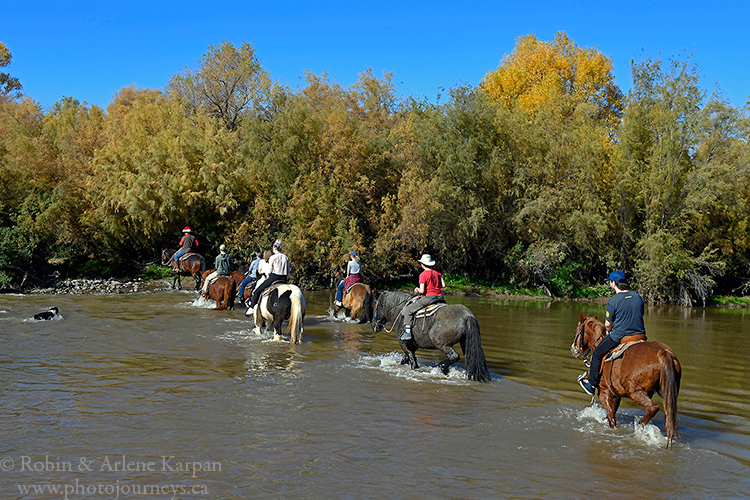
2) Kayak in the Desert
The most unusual thing we did was kayak in the desert. A stretch of the Salt River near Phoenix makes for a pleasant half-day trip. We did a guided trip run by REI Co-op in Scottsdale who use inflatable kayaks that are stable but have a lot of give to them if you encounter low water or other obstacles. Our guide Mike indicated that he has used these kayaks in class 3 rapids.
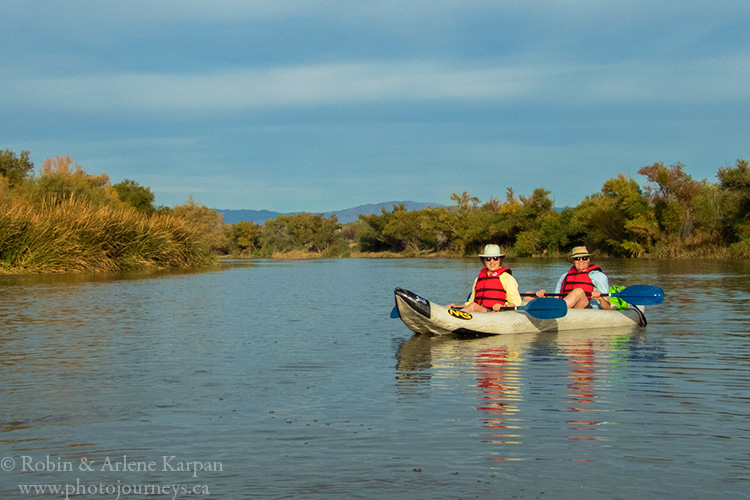
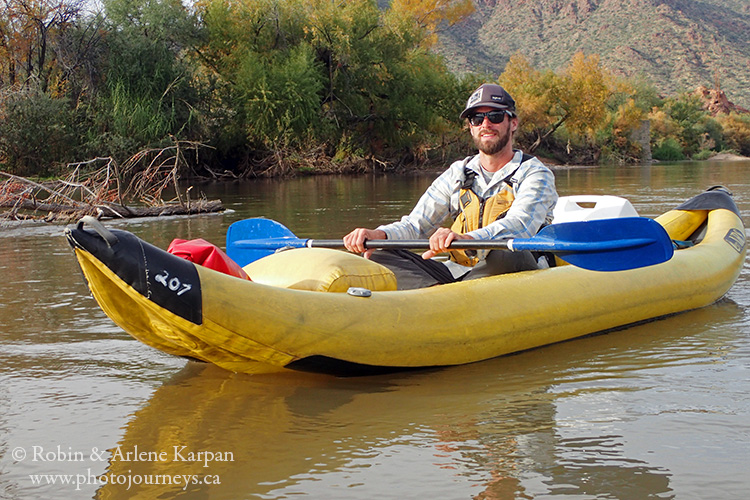
Our trip was quite easy-going. We mostly just steered in the steady current, yet there were enough riffles, minor rapids, and obstacles to keep things interesting. And we happened to see a bald eagle perched on a high tree, a great blue heron stalking the shoreline, and other birds along the way.
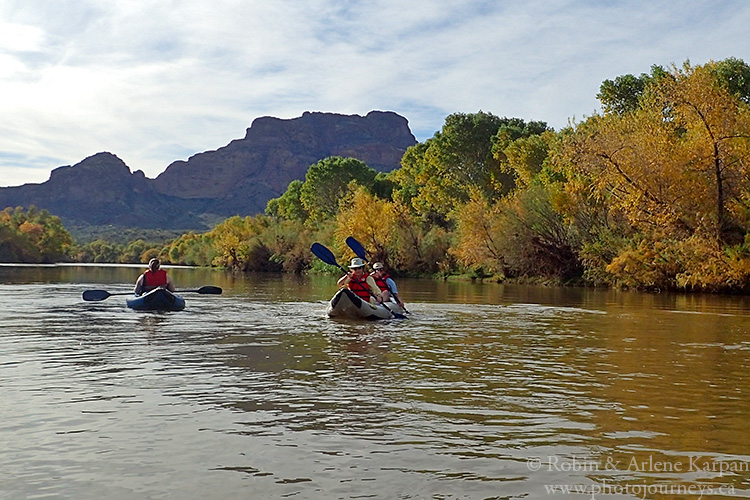
The desert looked different from the water, as we passed through a narrow strip of greenery with shrubs and tall trees, interspersed with red cliffs. The water was fairly shallow, but conditions can change quickly. A week before we arrived, heavy rains caused a flood that carried debris that was now caught in the trees about two metres up.
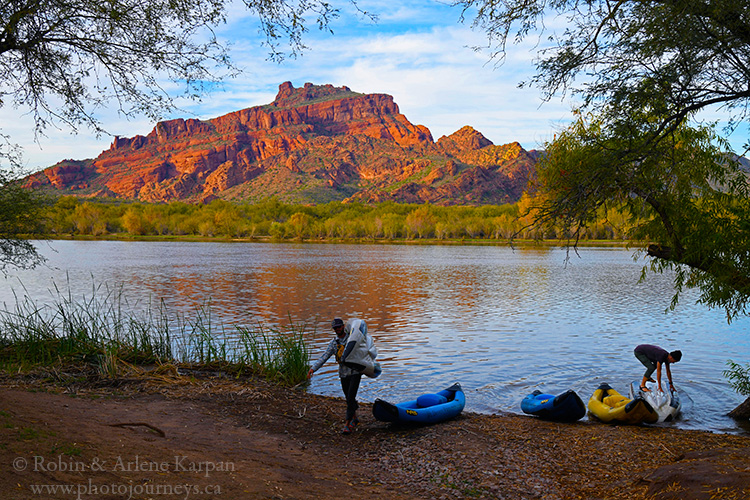
3) Take a Hike in the Desert
Hikers are spoiled for choice with a series of trails in parks scattered throughout the city and nearby. Usery Mountain Regional Park in Mesa offers extensive hikes, some with sweeping views, a nature centre, and even a campground if you fancy sleeping in the desert.
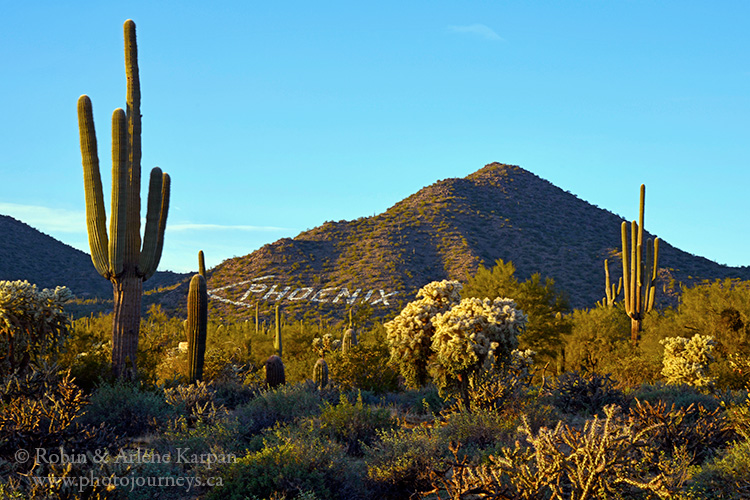
Another area we enjoyed was the McDowell Sonoran Preserve in Scottsdale, a vast natural area with an extensive network of trails and free admission as a bonus. It covers over 30,000 acres and 225 miles (360 km) of trails, so you can do some serious hiking if you like. For a more leisurely stroll, the trails close to the preserve entrance are excellent as well. Plan on being near the entrance near sunset (the preserve closes at sunset) to photograph the low sun washing a warm glow across the desert, or providing spectacular backlighting on the cacti.

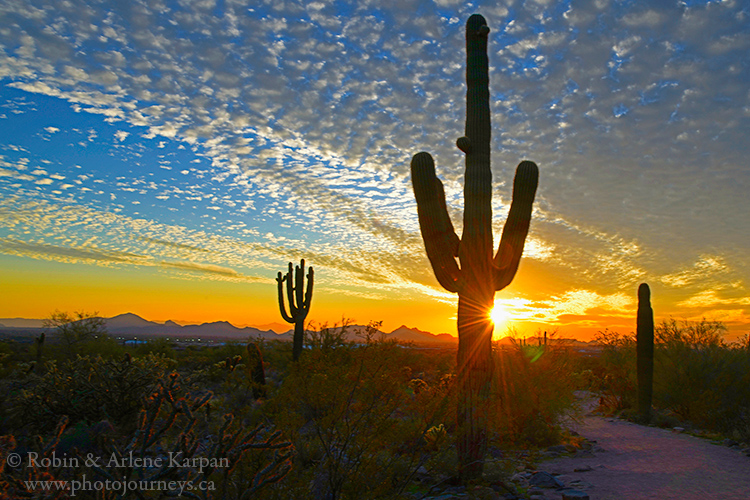
4) Visit the Hole-in-the-Rock
If you’re looking for a great outdoor experience that is super easy to do, with free admission, then a visit to the Hole-in-the-Rock is hard to beat. Indeed, we would rank this among the top must-do things in Phoenix.
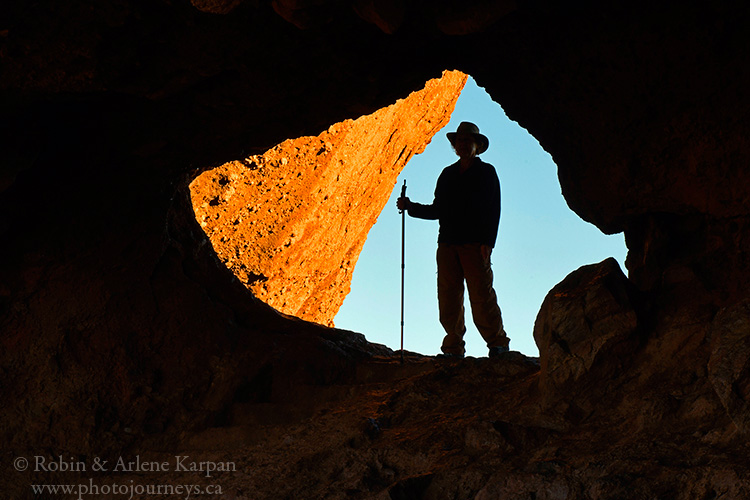
It is located in Papago Park with a network of hiking trails around red butte formations. You can drive right up to the Hole-in-the-Rock formation, then take a short uphill walk to the opening. The sandstone butte has a large window-like hole where you walk through for great views over the city.
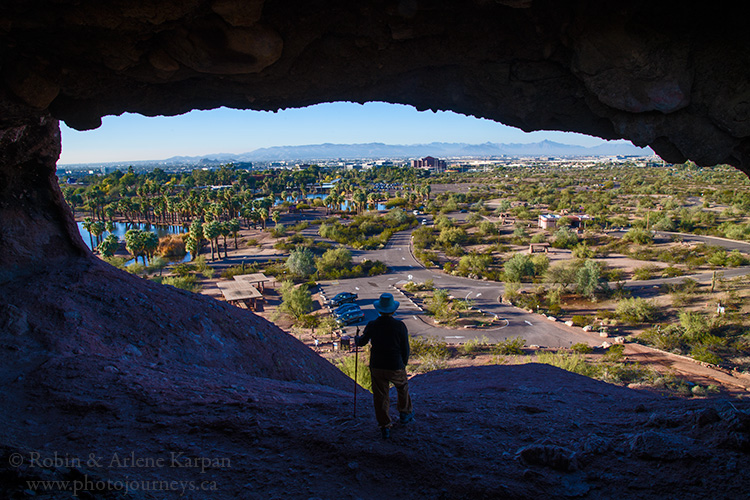
It’s a designated archaeological site, with evidence that the ancient Hohokam people used it as a calendar. Rays of light coming through the hole hit the rocks at different spots throughout the year, making it handy to mark the winter and summer solstice, or when to plant crops and perform ceremonies. They even carved markers to help with the measurements.
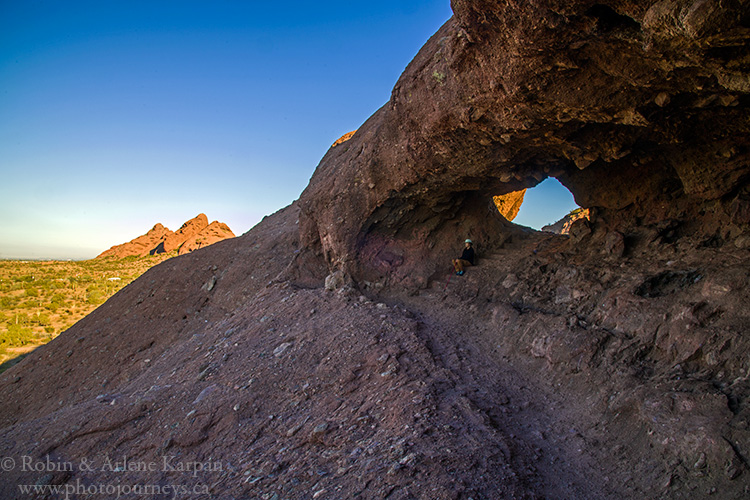
Though this popular spot gets a lot of visitors, we had the place to ourselves one morning shortly after sunrise. This suited us just fine, since sunrise and sunsets are ideal time for photography, when the low sun turns the rocks a brilliant red. See more photos in our previous posting on Hole-in-the-Rock.
5) Visit the Desert Botanical Garden
Located next door to Papago Park, the Desert Botanical Garden is the place to go to get oriented on the Sonoran Desert as well other deserts around the world. If you thought that deserts were mostly sand and little vegetation, this place is quite an eye-opener. Covering 140 acres, and with over 50,000 plants, it boasts the world’s finest collection of desert vegetation.
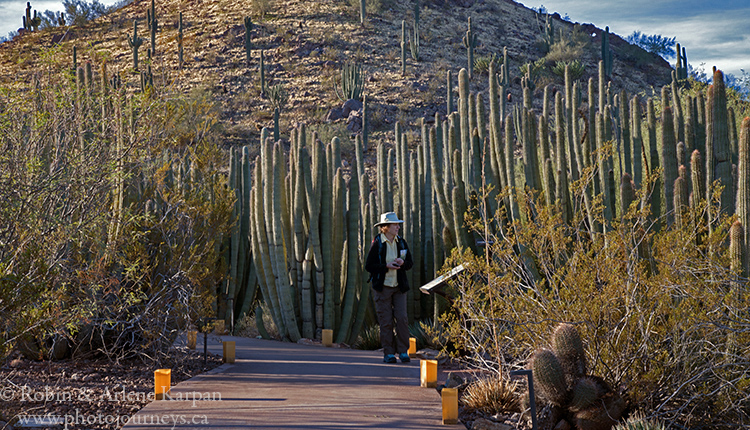
The gardens have five loop trails, each with a different theme, including everything from an Agave Yucca Forest to desert wildflowers, and how people traditionally lived in deserts. A nice touch is that volunteers are stationed throughout the gardens to answer your questions or demonstrate various aspects of desert plants: cactus identification, or how to tell the difference between similar-looking aloes and agave, for example.
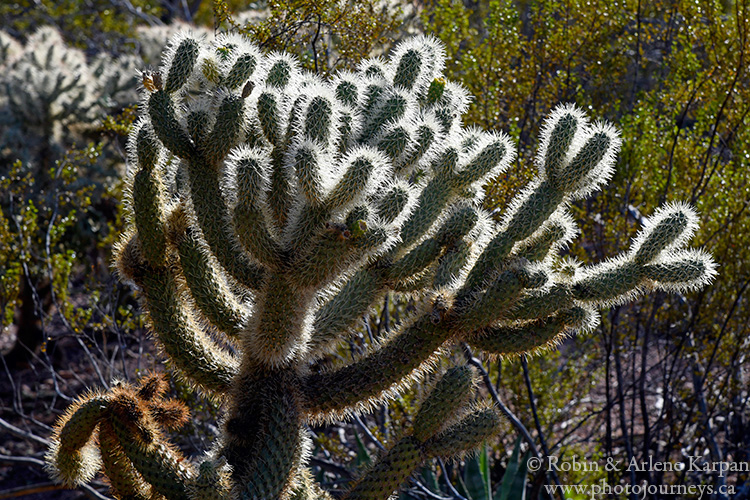
Try to go first thing in the morning, ideally just after the gardens open at 8:00. In winter, the sun will still be low in the sky, with warm light on the plants and terrain. Best of all is the spectacular backlighting on the cacti, many of which seem to glow in the low sunlight. A bonus is that there are fewer people around as well.
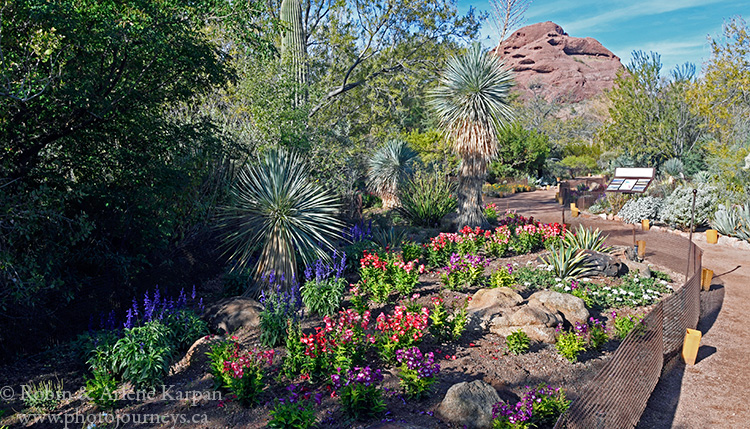
For more details, see our posting dedicated to the Desert Botanical Garden.
6) Take a Hot Air Balloon Ride
Phoenix is a hot air ballooning hotspot, with more fly-able days per year than anywhere in the country. We were picked up well before dawn and driven to the liftoff site for Hot Air Expeditions where they were already unrolling the massive balloon. Powerful fans fill it with air, then once it starts to inflate, they turn on the propane burners, and the gigantic bulb soon takes shape. Pilot Gary did a final check, then everyone jumped into the over-sized wicker basket.
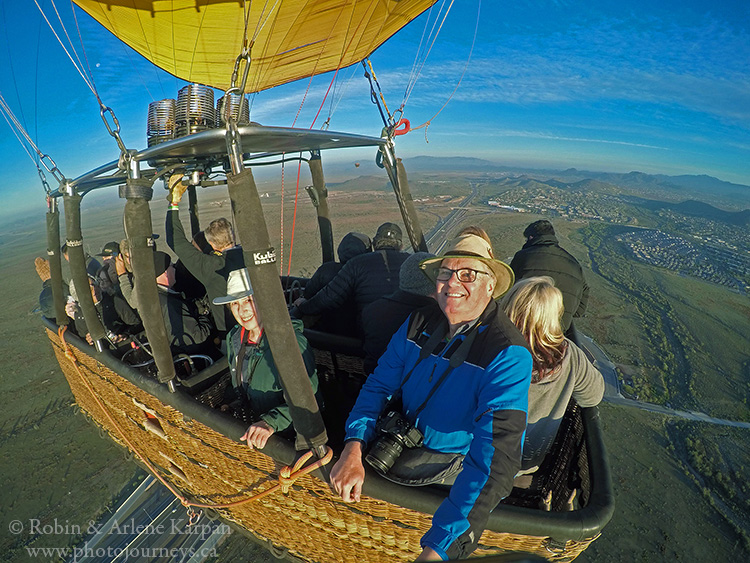
The ground crew untied the ropes, then it was up, up and away as we rose almost straight up, just as the sun cleared the nearby mountains. We had a sensation of effortless floating with no feeling of movement since we travelled at the same speed as the light wind. Other than the occasional blast from the burners, there was no sound either. We gradually glided away from the edge of the city, over the highway, and towards open desert.

Near the end of the flight, Gary aimed for a flat clearing with few rocks. We skimmed the tops of low bushes then gently bounced down as the ground crew grabbed the basket to slow it to a stop.
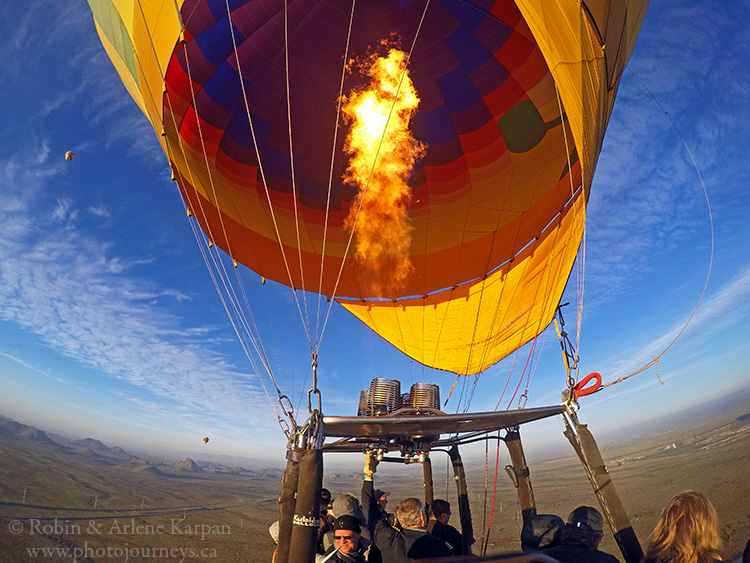
Then it was time to celebrate. Champagne has long been a ballooning tradition, though here we not only toasted the trip with a glass or two of bubbly, but also enjoyed breakfast served on tables set up in the midst of the Sonoran Desert.
Did you enjoy this article? Here’s more ideas on outdoor activities in Phoenix.
Hot Air Ballooning in Phoenix Phoenix’s Hole in the Rock Desert Botanical Garden in Phoenix
For more information, see www.visitphoenix.com
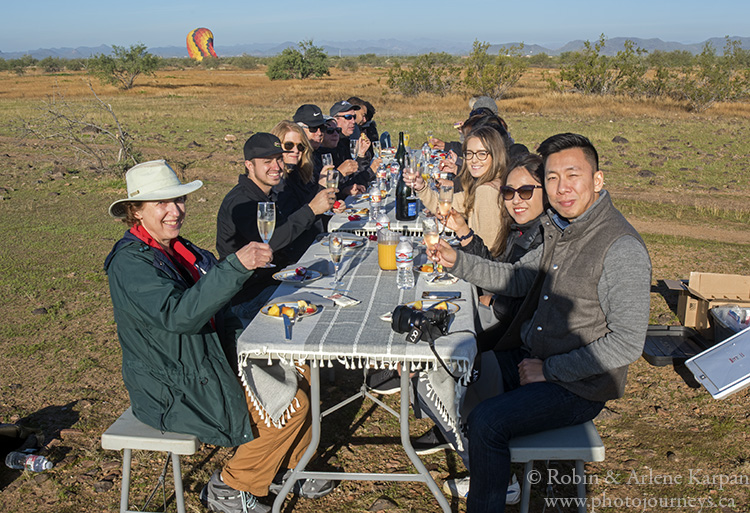
SUBSCRIBE to Photojourneys below
Feel free to PIN this article on 6 Ways to Enjoy the Outdoors in Phoenix
